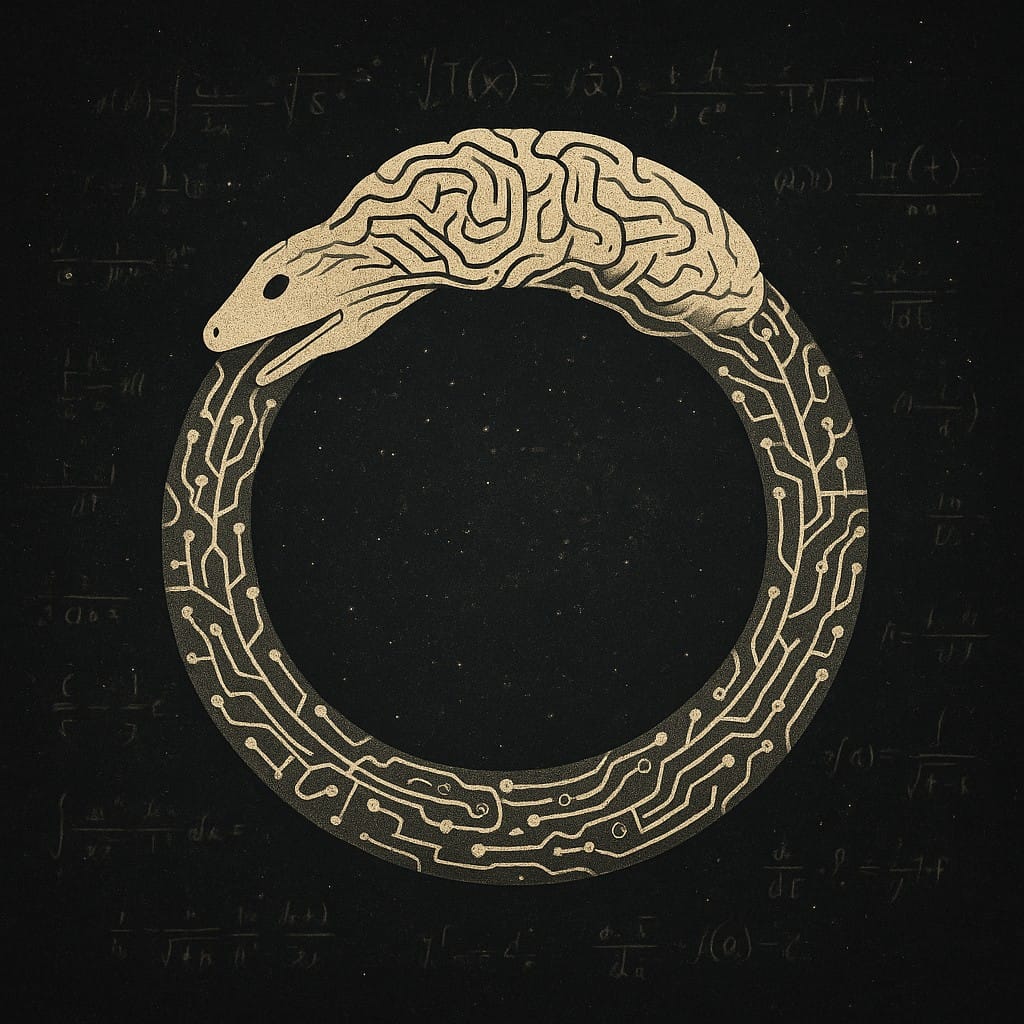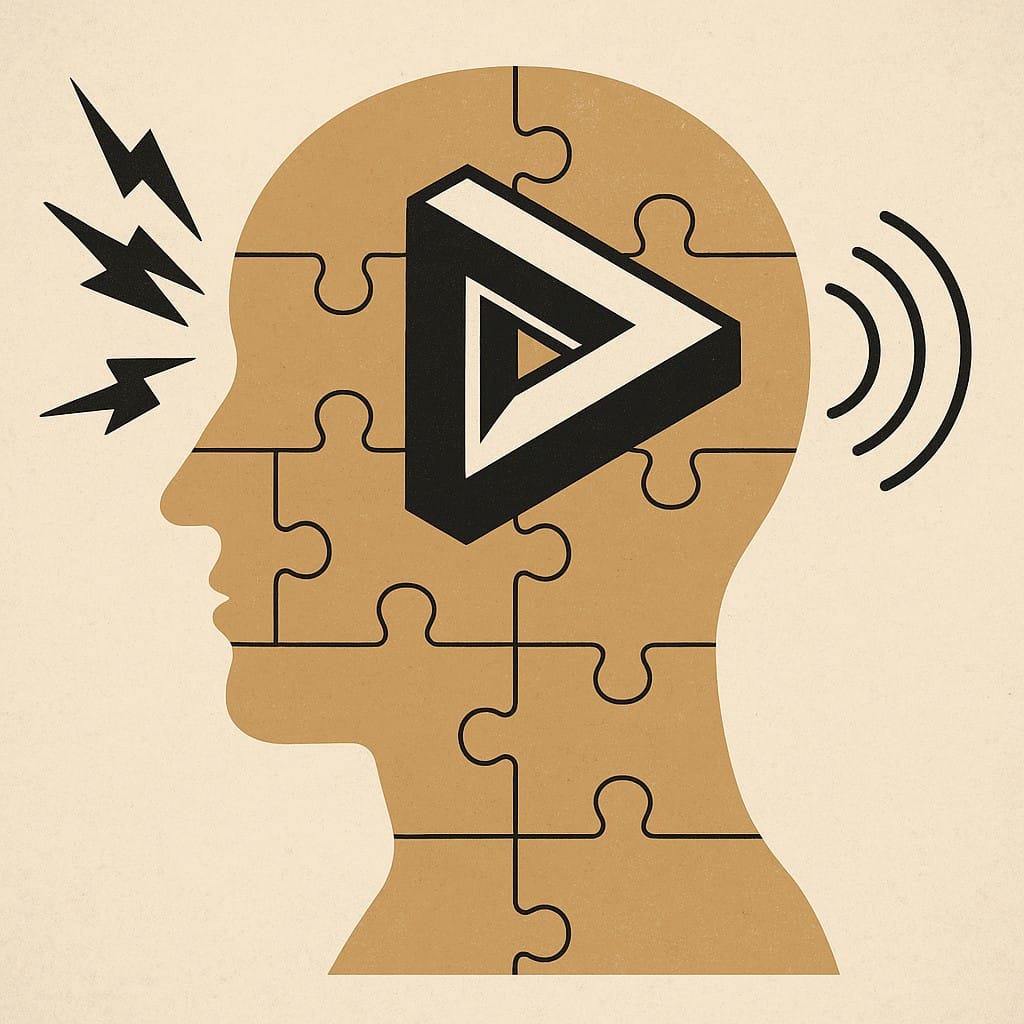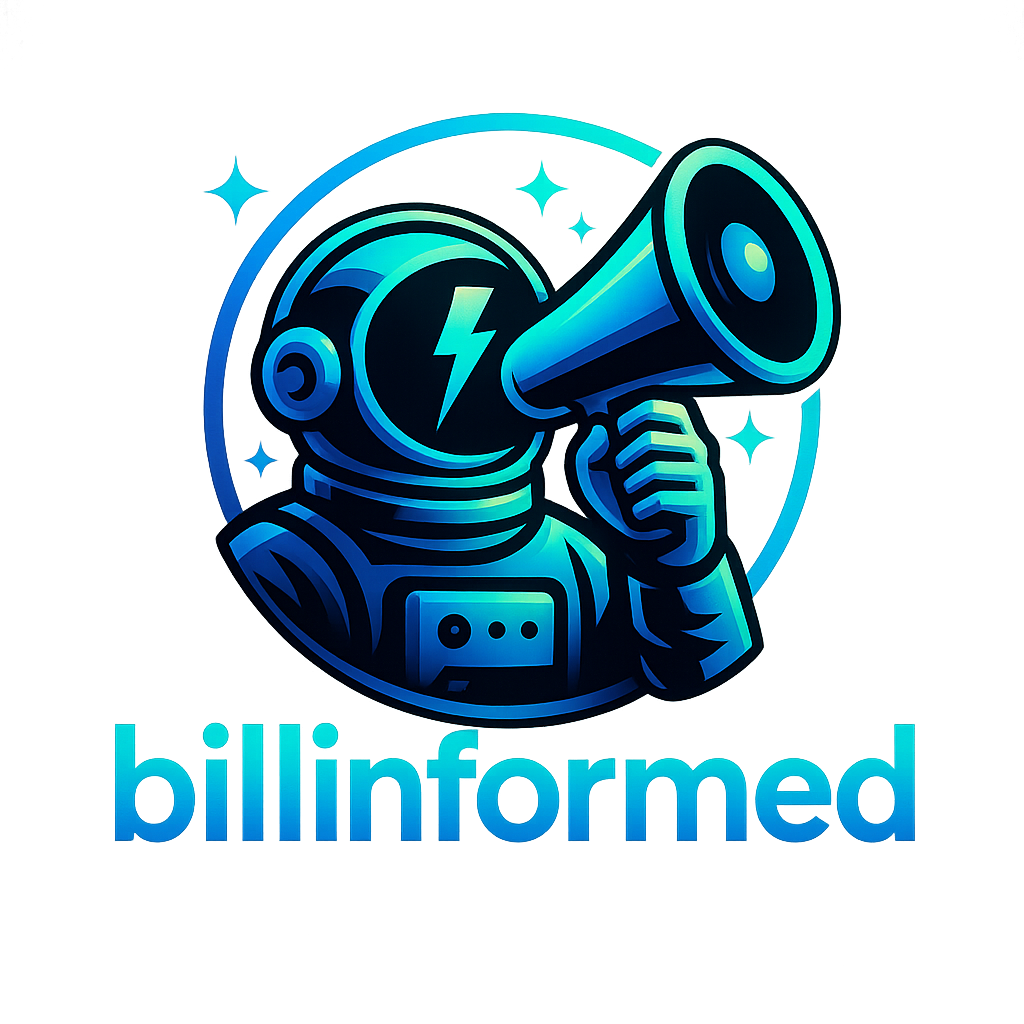Why Your Brain Builds Impossible Puzzles
Consciousness has a design flaw.
It becomes aware of its mortality, panics, then demands proof that this temporary arrangement of neurons deserves to continue existing. Two competing certainties clash in your skull. You're simultaneously convinced you're squandering your existence and that existence itself squanders everything.
Your internal narrator splits. One voice shrieks about productivity metrics. The other hums funeral dirges for the heat death of the universe.
Welcome to consciousness doing what it does best—constructing elaborate problems that cannot be solved within its own framework.

The Self-Eating Snake of Significance
Your brain manufactures a peculiar type of suffering. Call it significance anxiety.
It works like this: consciousness becomes aware of itself, freaks out, then immediately starts an audit. "Am I important enough to justify taking up space?" But consciousness is a terrible judge of its worth. It's like asking a flashlight to illuminate itself.
The panic manifests in two flavours.
Hyperactive significance-seeking: "I must accomplish something important or I'm failing at being human!"
Paralytic significance-denial: "Nothing persists anyway, so why pretend anything matters?"
Both responses share identical DNA. Both assume meaning must be imported from somewhere else—the future, the cosmos, other people's opinions. Both treat your existence like a loan requiring constant payments of justified importance.
This assumption contains a logical virus. If meaning must be earned, then existence without meaning is worthless. But if existence is worthless, then any meaning generated within it is also worthless.
The system eats itself.
The Scorekeeper Illusion
Humans invented something peculiar: emotional accounting.
You track whether today "counted" toward some imaginary ledger. Whether you "made progress." Whether you "used your time well." But time doesn't come with instructions. There's no user manual explaining proper temporal utilization.
You've inherited cultural stories about productivity and purpose. Then mistook these inherited narratives for natural laws.
The scorekeeper in your head operates like a broken GPS. It announces you're behind schedule for a destination that doesn't exist. Using directions to nowhere. Measuring distance with units that have no referent in reality.
When did you agree to this performance review system?
Who authorized consciousness to audit itself for meaning compliance?
The Mattering Misconception
Something extraordinary happens when you examine "Do I matter?" closely.
The question dissolves.
Mattering isn't a property you possess or lack. It's a relational phenomenon. You matter to your digestive system—try convincing your stomach you're cosmically insignificant. You matter to the gravitational field around you, however slightly. You matter to anyone whose day shifts because of something you said or didn't say.
The cosmic perspective—"I'm just a speck in an infinite universe"—commits a category error. It's like saying, "I'm disappointed that yellow doesn't taste like Tuesday." You're applying the wrong measurement system.
Scale doesn't determine significance.
A bacterium matters intensely to its immediate environment. A star matters intensely to its solar system. You matter intensely to your scale of operation. The universe doesn't hand out significance rankings because significance isn't a cosmic property—it's an emergent property of relationships and interactions.
The Curiosity Hack
Your brain has been asking the wrong question.
Instead of "What should I do to matter?" try this: "What am I curious about right now?"
Curiosity operates outside the significance economy. When you're genuinely curious about something—how bread rises, why certain songs make you cry, what would happen if you learned Italian—you're not asking the universe for permission to care.
You're already caring.
This sidesteps the entire existential trap. Curiosity doesn't require justification. It doesn't need to matter cosmically. It generates its own momentum.
Watch what happens: Follow curiosity for thirty minutes. Notice how the question "Is this meaningful?" becomes as relevant as asking what colour your thoughts are. You're too busy being interested to audit yourself for significance compliance.
The Engagement Algorithm
Meaning doesn't exist in some metaphysical warehouse waiting to be discovered.
Meaning generates itself through the process of engagement. You don't find meaningful activities—you create meaningful engagement with activities.
Consider: A mathematician working on an abstract proof isn't thinking about cosmic significance. They're absorbed in pattern recognition, logical consistency, elegant solutions. The meaning emerges from the quality of attention, not from the importance of the subject matter.
The same applies to anything.
Washing dishes mindfully generates more meaning than pursuing "important" goals distractedly. The meaning lives in the engagement quality, not the activity category.

The False Urgency Factory
Your brain manufactures urgency about time because urgency feels like purpose.
"I must do something NOW or I'm wasting my life!" contains a hidden assumption: that life is wasteable. But life isn't a resource you consume. It's a process you participate in.
You can't waste a process—you can only participate consciously or unconsciously, curiously or fearfully, openly or defensively.
The urgency to justify your existence creates the very meaninglessness it tries to solve. It's like being anxious about whether you're relaxing correctly.
The Reversal
Stop trying to solve existential problems.
Start treating them as interesting phenomena to observe.
What if existential dread isn't a problem requiring a solution but information about how consciousness works? What if the meaning crisis reveals something fascinating about the relationship between awareness and time?
Approach your existential questioning like a friendly scientist. "Interesting—look how my brain creates these elaborate puzzles for itself. How curious that consciousness demands justification for its own existence. What an odd loop."
This shift—from solving to observing—breaks the double-bind.
You're no longer trapped inside the problem. You're studying it from the outside.
The Rebellion
The most radical response to meaninglessness?
Genuine curiosity about your own experience of meaninglessness.
The most rebellious response to existential dread? Fascination with the mechanism that generates existential dread.
Your consciousness isn't broken. It's doing exactly what consciousness does—creating elaborate experiences, including the experience of questioning itself. Once you see this process clearly, you can participate in it deliberately rather than being victimized by it.
The question was never "What's the point?"
The question is: "What interesting thing wants to happen through this consciousness right now?"
Start there. Everything else sorts itself out.
I don't sell memberships or anything, but if you want to buy me a beer, I won't refuse.


